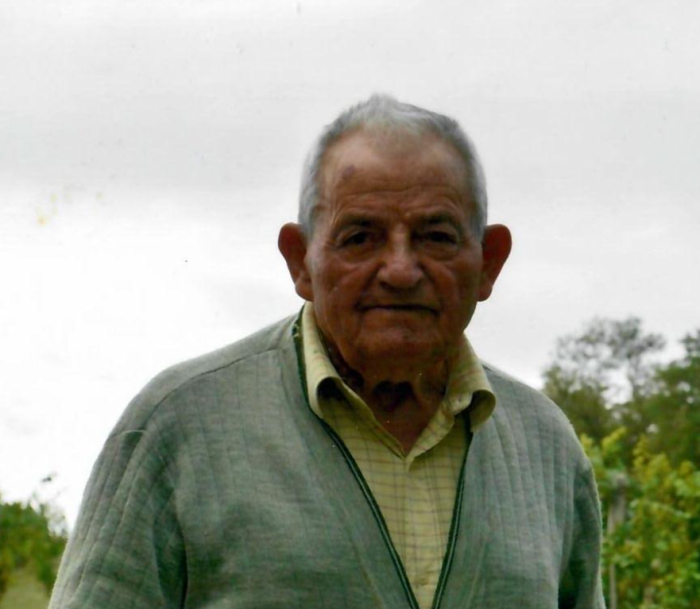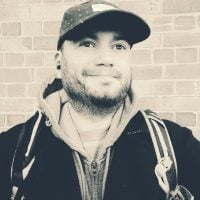I was lucky to have grandparents from both my parents’ sides.
We might not realise it, but this is a privilege denied to many. And it seems fairly important for our growth to spend time with grandparents.
In my case, it was my father’s father who I respected most, so I decided to write this as a tribute to him.
He was born in 1921 and went to World War II as a 22-year-old. He often told us stories about his time in the war, but I think he spared us the awful details, so we only knew certain things. But this tribute isn’t dedicated to my grandfather the soldier, but rather to his later-found identity as a beekeeper, because when I think about him, I almost always think of the bees. He was also a winemaker, but it was his love for bees that fascinated me the most.
In retrospect, it was through beekeeping I got to know him, and realised that indeed we all owe our ancestors a big thank you for it is through their actions that we are here. Of course, there was a lot of luck in him surviving the war, but it is because of this luck that my father is here and so am I.
I’m not sure who controls this luck element, but one way or another, one must bow before this power that effectively decides who is born and who lives.
Originally, my brother and I weren’t too excited about helping out with the bees. We were teenagers and work of this kind didn’t really appeal to us. But later, when we were around 20, we began to realise that this work is actually life in all its sacredness.
And even then, we didn’t see this in all its glory. We were just a bit more aware and accepting of this reality. True recognition of the importance of this seemingly ordinary activity came much later, and it seems even more extraordinary now when no one in my family keeps bees and all we have left are the memories.
I once bought a book about bees for my grandfather. He read it a few times and he would often tell me how beautifully it was written; I also saw that it matched his own interpretation of what it meant for him to raise bees. In these rare moments of connecting with him on a level of mutual understanding that what we shared was no less than the miracle of life, it was as if I could see his spirit through his ageing body. It seemed that there indeed is something in us, something that we refer to as soul, and even the most doubtful of us are somehow aware of the possibility that this part of who we are is forever.
“The first time that we open a hive there comes over us an emotion akin to that we might feel at profaning some unknown object, charged perhaps with dreadful surprise, as a tomb. A legend of menace and peril still clings to the bees. There is the distressful recollection of her sting, which produces a pain so characteristic that one knows not wherewith to compare it; a kind of destroying dryness, a flame of the desert rushing over the wounded limb, as though these daughters of the sun had distilled a dazzling poison from their father’s angry rays, in order more effectively to defend the treasure they gather from his beneficent hours.” ~ Maurice Maeterlinck, The Life Of The Bee
To this day, I remember how my normally hard grandfather had a young, probably day-old bee on his hand and said, “Oh little one, who knows how much time you have.” And then he threw her into the air to go fulfill her destiny.
It was normal to accidentally kill a few bees every time we were controlling their hives or collecting honey, and my grandfather never made a big deal out of it, but he also went to great lengths to save a drowning or trapped bee, even though he knew that in the grand scheme of things the hive would never suffer should that bee not return. I think it was this that made me admire his soft side, the side he never really expressed verbally (apparently, he never told his wife he loved her). We all see stories how people save dogs or cats or fawns—you name it—but to see someone saving an insect is much more rare.
By watching my grandfather tend the hives and perform all the tasks required to do this, I learned what it looks like when one is present and passionate about what they do.
Don’t get me wrong, it looked fairly ordinary on the outside, and I suppose there’s a lot of romanticising added by the absence of this in my life, but we all occasionally come across moments when we can say one is aligned with what they do. This hits home quite hard as I keep noticing in myself how easy it is to not be present and, therefore, live an unauthentic life.
I believe my grandfather managed to live an authentic and fulfilled life, even though he didn’t really leave his hometown for many of his late years. It seems he simply found a way to be fully present without attending any courses or reading any books. He wasn’t distracted by anything that wasn’t part of what he was doing, which is very different to the way I live at the moment.
When my grandfather started to lose his hearing, I began to send him letters to stay in touch. I would often write about our time together, how I see these moments differently, and how grateful I am for what he taught me. I don’t think I ever told him how much I loved him and it is quite painful to know that he never heard it from me—but I believe he knew. He wasn’t a person who considered expressing his feelings necessary, but he was expressing love and kindness through his actions. And, I must say, that was enough.
Perhaps the current calling for humans to be more vulnerable and expressive is a fair shift to new ways of being and coexisting together, but he was born into different times, and it simply wasn’t possible for him to show this side.
“In a world where nothing save a few facts of this kind indicates a precise will, it is significant enough that we should see certain creatures rising thus, slowly and continuously; and should the bees have revealed to us only this mysterious spiral of light in the overpowering darkness, that were enough to induce us not to regret the time we have given to their little gestures and humble habits, which seem so far away and are yet so nearly akin to our grand passions and arrogant destinies.
It may be that these things are all vain; and that our own spiral of light, no less than that of the bees, has been kindled for no other purpose save that of amusing the darkness. So, too, is it possible that some stupendous incident may suddenly surge from without, from another world, from a new phenomenon, and either inform this effort with definitive meaning, or definitively destroy it. But we must proceed on our way as though nothing abnormal could ever befall us. Did we know that tomorrow some revelation, a message, for instance, from a more ancient, more luminous planet than ours, were to root up our nature, to suppress the laws, the passions, and radical truths of our being, our wisest plan still would be to devote the whole of today to the study of these passions, these laws, and these truths, which must blend and accord in our mind; and to remain faithful to the destiny imposed on us, which is to subdue, and to some extent raise within and around us the obscure forces of life. None of these, perhaps, will survive the new revelation; but the soul of those who shall up to the end have fulfilled the mission that is pre-eminently the mission of man, must inevitably be in the front rank of all to welcome this revelation; and should they learn therefrom that indifference, or resignation to the unknown, is the veritable duty, they will be better equipped than the others for the comprehension of this final resignation and indifference, better able to turn these to account.” ~ Maurice Maeterlinck, The Life Of The Bee
I moved to the UK in 2007 and my grandfather died in 2014. I was lucky to be on holiday back home, and I saw him a few days before he passed away.
I was also privileged to say the eulogy at his funeral.
These things not only shape us in the moment, but they somehow continue to shape us for the rest of our lives.
As I write this, I still feel almost as close to him as I was when he was alive. As if anyone we meet and share a journey with imprints something onto us and that experience then begins to evolve and develop its own life in our internal landscapes.
It isn’t always visible on the people we meet what kind of loss shaped them. But if we pay attention, we can recognise the moments in their life where losing someone changed them forever and they decided to honour this person by living a good and noble life.
I have a few good shortcomings, and there are things I’ve done that I’m not exactly proud of, but I wanted to write this tribute to my grandfather and say: I love you Apa!
~









Read 3 comments and reply